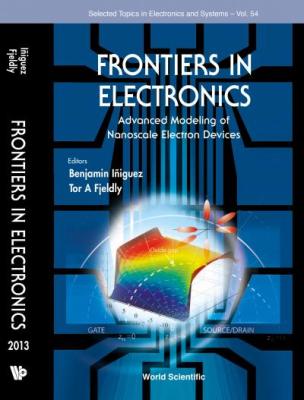Mar 27 2014
World Scientific has published its latest electronics frontiers book on advanced modeling of nanoscale electron devices.
 This is the book cover of Frontiers in Electronics. The original image can be found at: http://www.worldscientific.com/worldscibooks/10.1142/9077. Credit: World Scientific, 2014
This is the book cover of Frontiers in Electronics. The original image can be found at: http://www.worldscientific.com/worldscibooks/10.1142/9077. Credit: World Scientific, 2014
Entitled "Frontiers in Electronics: Advanced Modeling of Nanoscale Electron Devices", the book is edited by Benjamin Iñiguez (Universitat Rovira I Virgili, Spain), Tor A Fjeldly (Norwegian University of Science and Technology (NTNU), Norway).
The contents address the Monte-Carlo simulation of Ultra-Thin Film Silicon-on-Insulator MOSFETs, analytical models and electrical characterisation of advanced MOSFETs in the Quasi-Ballistic Regime, physics based analytical modeling of nanoscale multigate MOSFETs, and compact modeling of double and tri-gate MOSFETs.
The collection of these chapters in the book are attempted to provide a comprehensive coverage on the different levels of electrostatics and transport modeling for these devices, and relationships between them. In particular, the issue of quantum transport approaches, analytical predictive 2D/3D modeling and design-oriented compact modeling. It should be of interests to researchers working on modeling at any level, to provide them with a clear explanation of theapproaches used and the links with modeling techniques for either higher or lower levels.